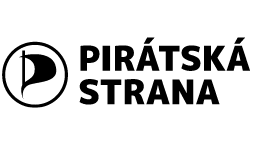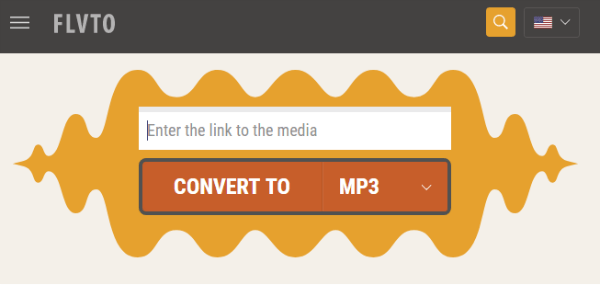
The ISP was found guilty of willful contributory copyright infringement and ordered to pay music publisher BMG Rights Management $25 million in damages.
Cox swiftly filed its appeal arguing that the district court made several errors that may ultimately restrict the public’s access to Internet services.
This week the Court of Appeals for the Fourth Circuit heard oral argument from both sides, which turned out to be an interesting exercise. The panel of judges Motz, Shedd, and Wynn grilled of both attorneys in an effort to distill the crucial arguments.
Cox attorney Michael Elkin was first up. Among other things, he stressed that Cox didn’t have actual and sufficient knowledge of the claimed infringements.
While BMG uncovered internal Cox emails discussing how frequent offenders were kept on board, these were not specifically discussing BMG infringed works, he argues. However, Judge Wynn stressed that the emails in question did discuss Cox’s policy of not disconnecting infringers.
“But they’re talking about the general abuse department in terms of, where we get these things, this is what we’re going to do with them because we don’t want to lose customers. I mean, it’s the same thing,” he said.
It’s also clear that BMG sent over a million takedown notices to Cox. However, since these were not the ones referenced in the company’s internal emails, these are irrelevant when it comes to the company’s liability for alleged contributory infringement, Cox’s attorney noted.
The back and forth over various issues became rather lively up to a point where Elkin was asked to stop interrupting. “When a judge speaks, you have to be quiet,” Judge Shedd said.
BMG attorney Michael Allan was next in line to present his arguments, which were also carefully dissected by the judges. The attorney stressed that in addition to the takedown notices, BMG provided Cox with a wealth of information on the alleged infringers.
He explained that they sent 1.8 million takedown notices to Cox. When asked what the Internet provider should do with all these notices, Allan mentioned the dashboard they made available, which would help the ISP to check all claims.
“We also provided them with a dashboard. It’s a searchable website that they can search by most egregious repeat infringer, they can pull up every single piece of information we’ve ever provided to them, and they can play the actual songs that were downloaded,” BMG’s attorney said.
Judge Wynn, however, questioned whether the ISP’s abuse department would listen to thousands of infringing songs.
“An internet service provider is going to receive 20,000 of these things per day, 1.8 million a year, or whatever, I don’t care. And they’re going to start playing songs and things like that to see if it’s going on?
“You think that’s where this case is going to go?” Wynn added.
The judges then moved on to the repeat infringer question. An important question asked, was what a ‘repeat infringer’ actually is. BMG’s attorney described this as “someone who repeatedly infringes copyright,” but that wasn’t enough.
“How does somebody know a third party is an infringer? ‘Cause you say so?” Judge Shedd asked.
Cox, for example, sees a repeat infringer as someone who has been previously adjudicated, not someone who has received several takedown notices. Eventually, all had to admit that a repeat infringer is not clearly defined in the DMCA.
Judge Wynn then moved on to highlight another peculiarity. While this case deals with Cox’s failure to implement a repeat infringer policy, this legal requirement by itself is rather meaningless. Even when subscribers are disconnected, they can still join another ISP or come back to Cox after a few months, which makes it pointless.
“As Judge Motz indicated it’s not a perfect solution,” BMG’s lawyer commented.
“It’s not even a good one,” Judge Wynn added.
Another controversial topic that came up is the fact that Cox refused to pass on BMG’s demands because the ISP saw the included settlement demands as extortion. While BMG’s attorney tried to downplay the money issue, Judge Shedd made it very clear what this case is actually about.
“[The DMCA notice] says: you are infringing, you can go to this website and click and pay us $20 or $30. If not, you’re looking at a $150,000 fine. It was about collecting money. We don’t dance around that do we?” Shedd said.
Both Cox and BMG ultimately wanted money from the allegedly infringing subscribers, who might now face an even bigger threat.
“You have two corporations fighting over money, which may be justified. But the net effect of this battle is going to be up against another policy, which is, I think it is the policy, that people should have access to the Internet,” Judge Shedd said.
While the case can still go either way, the oral hearing suggests that the panel of judges is not putting too much weight on the notices sent by BMG. The internal emails from Cox appear to be the key part. Still, we’ll have to wait for the full opinion to see if that’s really true.
Source: TF, for the latest info on copyright, file-sharing, torrent sites and ANONYMOUS VPN services.

 YouTube is the world’s leading video and music service and has partnerships with thousands of artists and other publishers around the globe.
YouTube is the world’s leading video and music service and has partnerships with thousands of artists and other publishers around the globe. 
 Just over a month ago, a Javascript cryptocurrency miner was silently
Just over a month ago, a Javascript cryptocurrency miner was silently  In recent years, New Zealand has been the center stage of the largest copyright battle in Internet history; the criminal prosecution of Megaupload and several of its former employees.
In recent years, New Zealand has been the center stage of the largest copyright battle in Internet history; the criminal prosecution of Megaupload and several of its former employees. 


 The Czech Pirates have made quite a name for themselves in recent years.
The Czech Pirates have made quite a name for themselves in recent years. 
 At the beginning of October, several entertainment industry groups shared their piracy concerns with the US Government’s Trade Representative (USTR).
At the beginning of October, several entertainment industry groups shared their piracy concerns with the US Government’s Trade Representative (USTR).  Free music is easy to find nowadays. Just head over to YouTube and you can find millions of tracks including many of the most recent releases.
Free music is easy to find nowadays. Just head over to YouTube and you can find millions of tracks including many of the most recent releases.